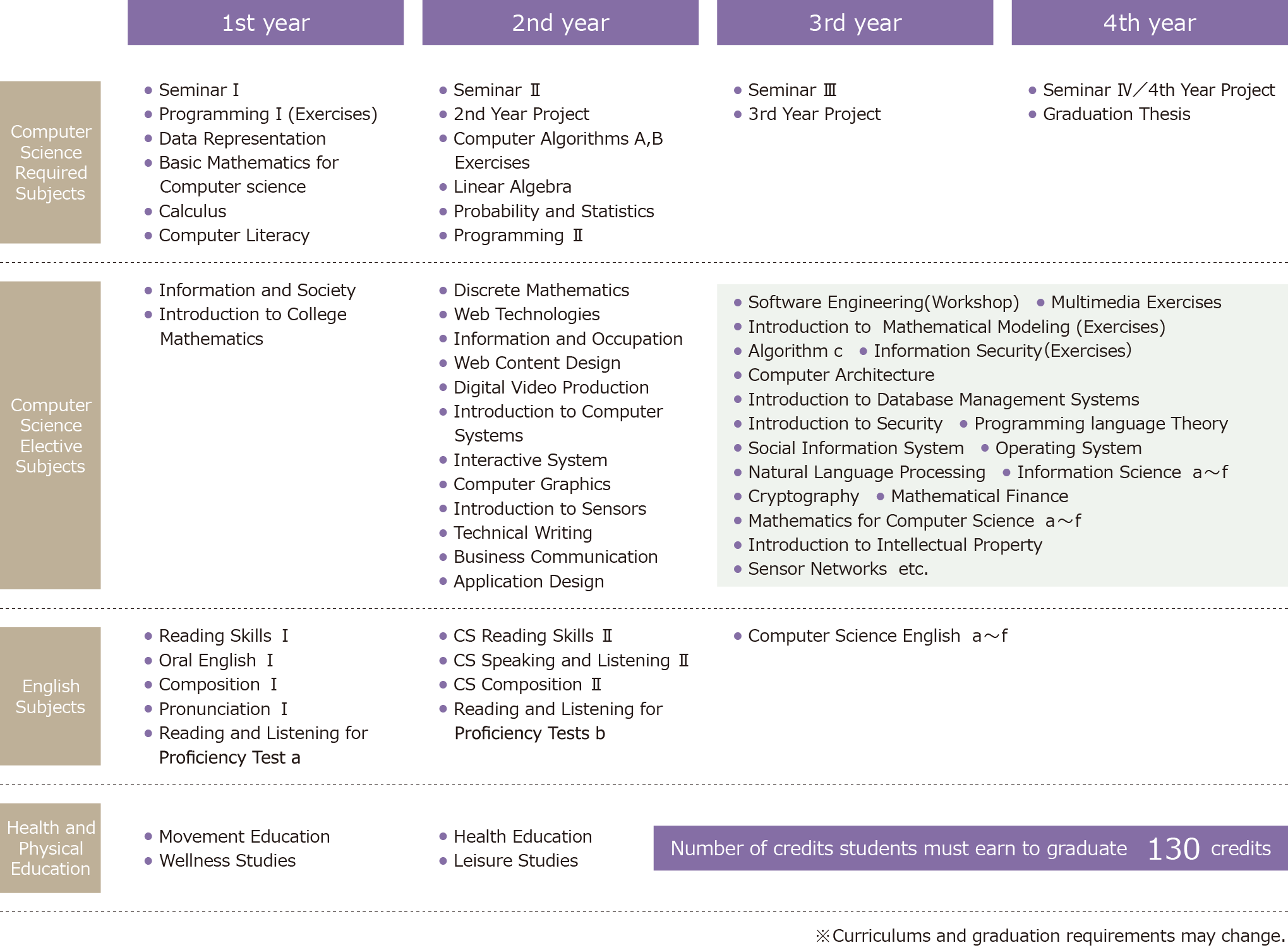Department of Computer Science
Department of Computer Science
Computer science education at Tsuda University has evolved since its begin-nings in 1949 in the Department of Mathematics (later the Department of Mathematics and Computer Science) to its present incarnation as a full-fledged department in its own right with the introduction of the Department of Computer Science in 2006. The goal of the Department of Computer Science is to provide students with both a solid theoretical grounding in informatics and the necessary practical skills to pursue a high-level career in information technology. Throughout the years, Tsuda has had a proud record of placing graduates in high level positions as computer professionals.
Curriculum Features
To ensure that students receive a solid mathematical and theoretical foundation, we offer courses covering the basics in areas such as statistics, probability, mathematical modelling, discrete mathematics, and cryptography. On the more practical side, fundamental course topics include programming, networking, object-oriented design, and application design, among others.
In addition to regular required classes, students have opportunities to focus on a single area of practical computer science in seminars. The goal of the first year seminar is to acclimate the students to college level computer science. In the second year seminar, students learn the principles of programming and receive an overview of a variety of disparate programming languages and paradigms. In the third year, students get a full year of hands-on experience with a specific programming language. In the fourth year seminar, working alone or in small groups, students must bring together a variety of practical resources including programming, scripting and query languages, management tools, and applications to realize a fully developed, working piece of original software.
The department also offers elective courses on cutting edge topics in IT such as computer graphics, content creation and management, multimedia communication, computer-aided education, interactive systems, image processing, web applications, natural language processing, and mathematical finance.
At Tsuda University, we believe that one of the necessary skills for our students in the IT world today is fluency in English. As the world becomes rapidly more interconnected, and as the flow of information increases in speed and volume, we believe that those who cannot take full advantage of the wealth of information and resources available in English will be quickly left behind in the world of technology. We believe that it is crucial to give the students the knowledge, skills and confidence to seek answers from the Internet and the global community, and to understand the information available to them. It is in this area that Tsuda University’s renowned strength in English education truly sets the Department of Computer Science apart from other computer science curricula in Japan. In addition to required technical English courses, we also provide some advanced computer science elective courses taught entirely in English and encourage students to make use of English language resources both inside and outside of the department to gain a global perspective on information technology.


Curriculum Outline
